It’s taken a wee while to organise the meeting but as befits a man with a lifetime of experience in managing others; teaching and in cycling management, he walks in the door of Starbucks bang on time. Belying his 74 years, Ivy’s Ian Thomson could get away with saying he’s 10 years younger.
No need for copious notes to try and make sense of his palmarès; they’re all there for me along with pictures and additional information.
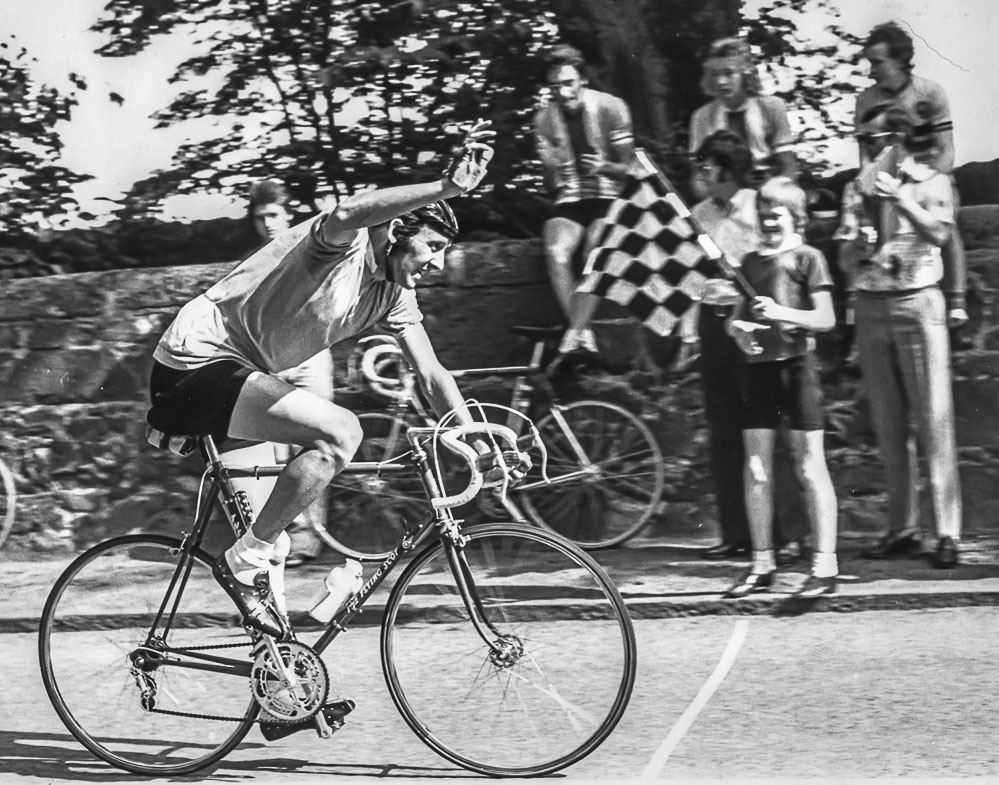
Let’s start with those palmarès:
- SCU Hill Climb Championship: 3rd 1960; 2nd 1964; 1st 1962
- SCU 4000 m. Pursuit Championship: 3rd 1959; 2nd 1960; 1st 1961
- SCU 15 k. Scratch Championship: 1975 1st
- SCU Junior TT BAR Championship: 3rd 1958
- SCU TT BAR Championship: 2nd 1960
- SCU 12 Hour Championship: 2nd 1960
- SCU 100 Mile TT Championship: 3rd 1961
- SCU Senior Road Championship: 2nd 1975 & 1965; 1st in 1964
- SCU Senior Road Race BAR Championship: 2nd 1977 & 1973
- SCU Veterans Road Championship: 3rd 1988
Palmarès which illustrate a very versatile bike rider who raced from 1958 until 1995, if in a less serious way in the latter years.
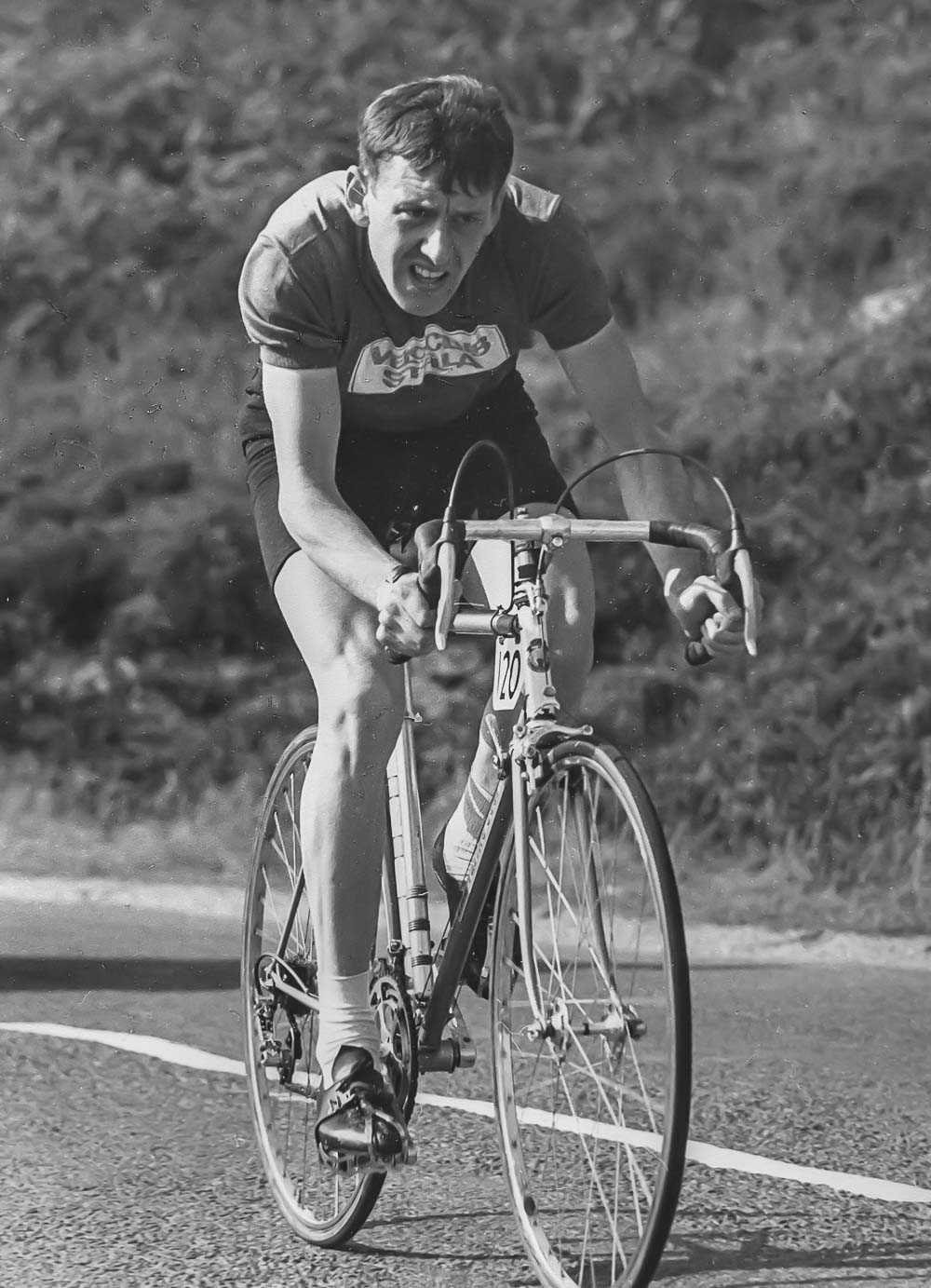
We started by asking how he got into cycling in the first place?
“My dad cycled in the 1930’s, I attended a function with him at the Falkirk CTT and I got talked into joining Falkirk Road Club with some other lads – but they discovered women and drifted away and I went on to join Stirlingshire Roads.
“I was third in the junior BAR in 1958 but my memory has let me down on 1959, I’m afraid.
“In 1960 I rode the senior BAR distances, I had a reasonable ‘50’ and ‘100’ but a good ‘12’ – I was second in the ‘12’ championship and finished second overall in the BAR.
“But I really wanted to be a roadman and to the surprise of others, that was the end of my time trialing.”
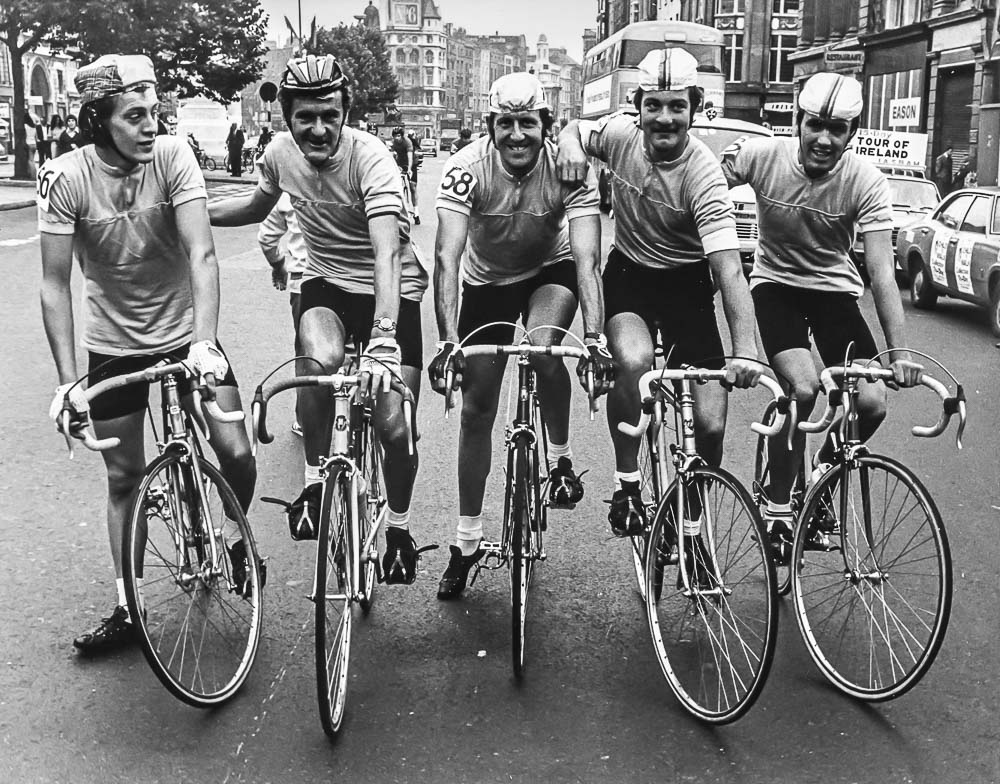
And you joined the legendary VC Stella?
“The club was originally called ‘Stella Maris’ starting as a racing offshoot of Saint Christopher’s Catholic Cycling Club and changing the name to VC Stella in 1953.
“The big names were Ronnie Park and Ken Laidlaw, both very good riders.
“It was never a big club with reason for that being that road race organisers would only accept teams of four from the one club; not like today when you can have as many as you like riding from the same club.
“I was with the Stella up until 1973 when the club got so small there was no point in continuing; I wanted a social side to my cycling so I joined the Glasgow Ivy and have been there ever since.
“It’s a good club which has been around since 1928, they had good lads like Les Mcleod and the late John Clark as members.
“I’m still there and we have good people, Les is still there, Ken Clark and Janette Hazlett.
“I was treasurer for 30 years but gave that up five years ago.”
Did you ride much at international level?
“I rode the Tours of Scotland and Britain and the Tour of Slovakia – I was selected for the Peace Race in the 60’s but ended up not making the trip – which was disappointing because ’64 and ’65 were my best years.”
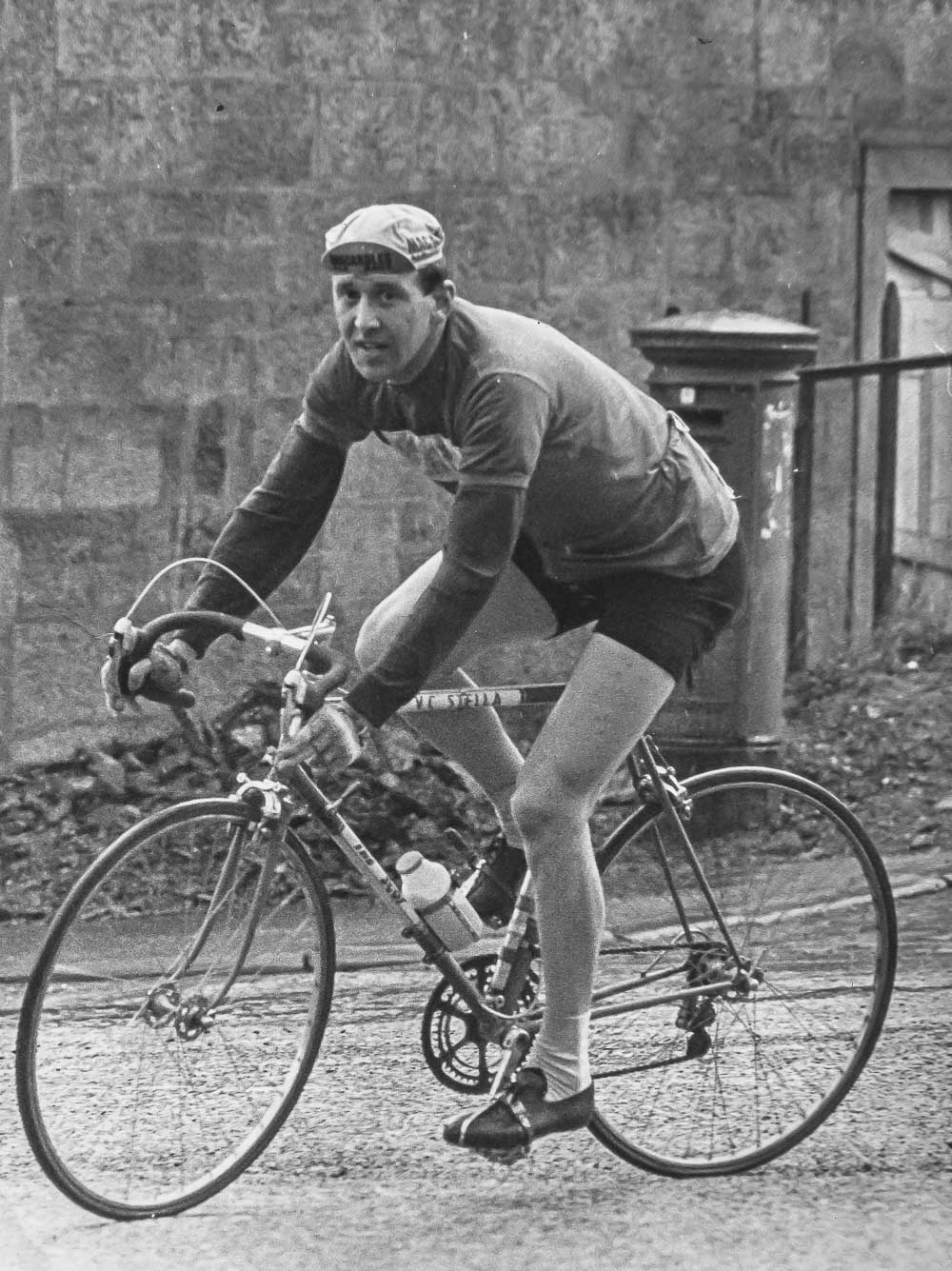
You won just about every road race worth winning in Scotland, didn’t you?
“I won the Glasgow Centre and National Championships, the Glasgow-Dunoon three times, the David Campbell Memorial, the Crianlarich Circuit, The Drummond Trophy…”
[Ian also won the classic Tour of the Shire and Tour de Trossachs mountain time trials, ed.]
“Scottish road races were much longer in the 60’s though – a lot of races were over 100 miles which isn’t the case now.
“And the Girvan Three Day at Easter time was a good event; that set you up with some early quality racing.
“I rode the British Milk Race twice, it was good for me as a young rider because there was no language barrier.
“There were some very good riders in the field, Billy Holmes could do everything from breaking the ‘25’ record to winning the Milk Race and then professional road races.
“Bill Bradley rode too, he was a good guy, friendly, giving advice to you.
“The first three days were hard but once you got into the rhythm of the thing it was better – and once I recovered from it, I was flying.”
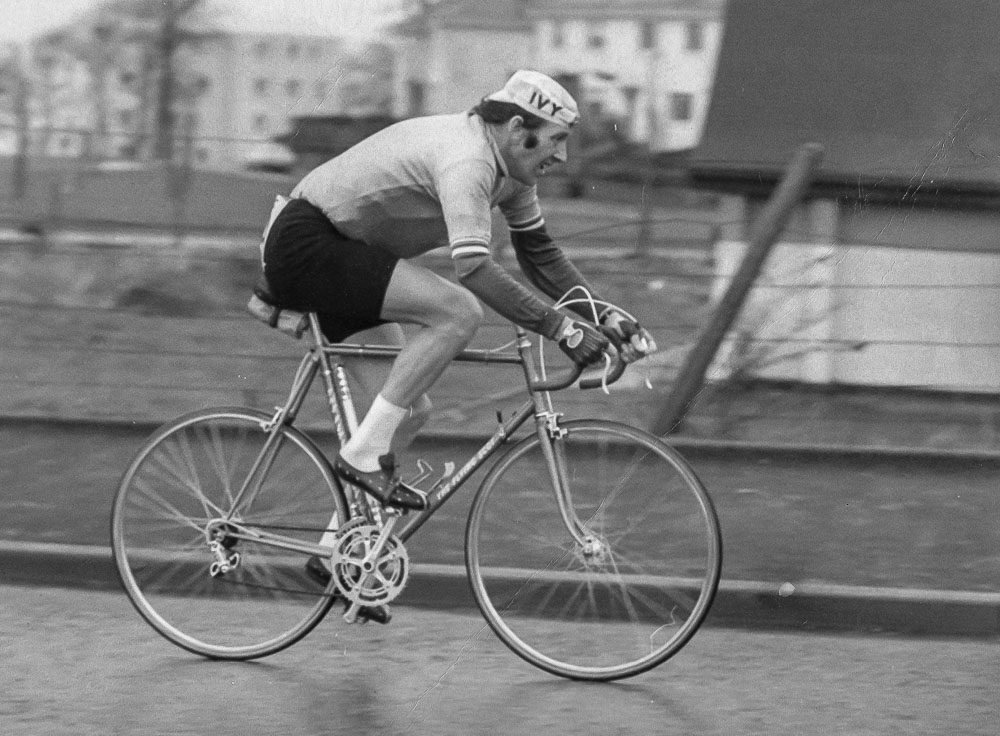
What was your equipment like?
“Many rode five speed with 49/52 but I rode 44/52 – you just had to ‘slog’ the hills.
“I rode a Flying Scot, they gave you a bit of a discount and you swapped it for a new frame at the end of the year.
“I had them ‘personalise’ the frame for me, back then bikes were ‘gappy’ but I didn’t want that and had them tighten up the clearances for me.”
Did you ever consider ‘doing a Billy Bilsland’ and moving to England then France?
“At one stage I did consider a job in London but I had a good career here and was married with children.
“And if you’re being totally honest about it, not many riders actually ‘make it.’”
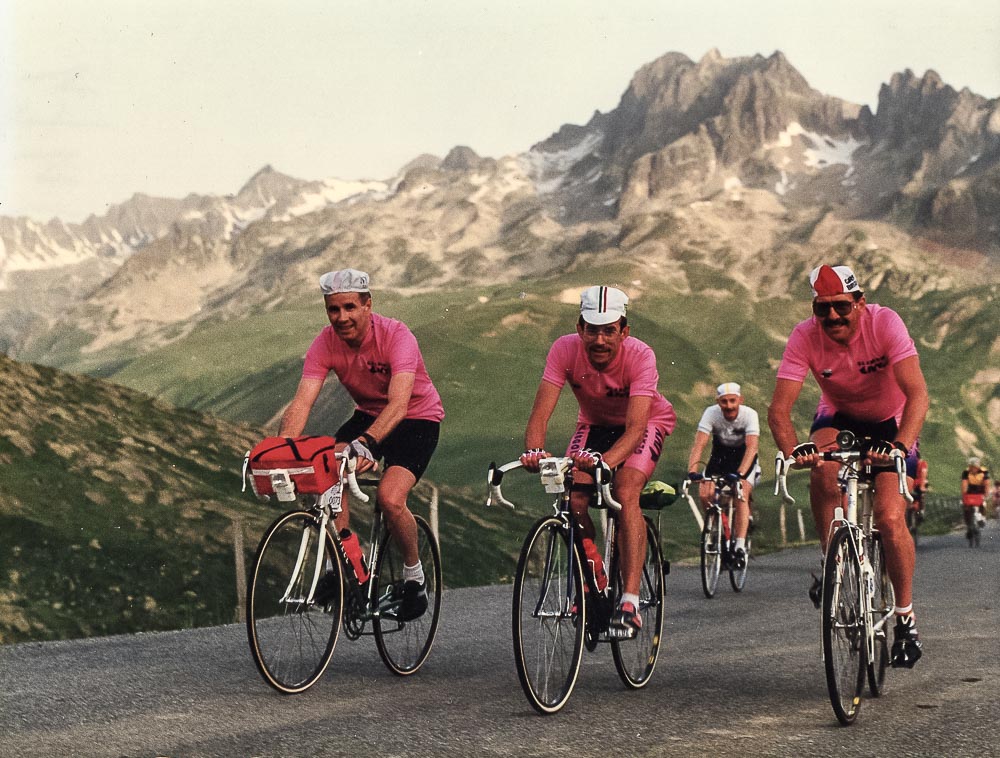
How did your training compare to how riders train now?
“We did big mileages in bunches in the winter and that meant you had good base and technique.
“The mantra back then was that you trained to get fit but raced to win.
“I think that the reliance on indoor ‘turbo’ training has led to riders being less able to ride in a bunch – even back when I raced you could tell the guys whose training was mostly intervals because they didn’t have the bike handling skills.
“Guys like John Clark didn’t just race, they adopted a mentoring role for the young guys just starting out – I don’t think that happens anymore?”
When did you move into management?
“That was in 1969, Arthur Campbell invited me.
“I broke my collarbone in 1967 and had a bit of a blank year, in ’69 I managed the Scotland ‘B’ team in the Tour of Scotland, Jimmy Dorward managed the ‘A’ team but resigned and I got the post of manager for the 1970 Edinburgh Commonwealth Games but there was no money for proper Games preparation.
“Despite that, Brian Temple won silver in the 10 mile – the unsung hero that day was Sandy Gordon who closed down everything that moved, behind.
“The break of three that Brian was in never had more than a half lap and Sandy rode a great race that day.”
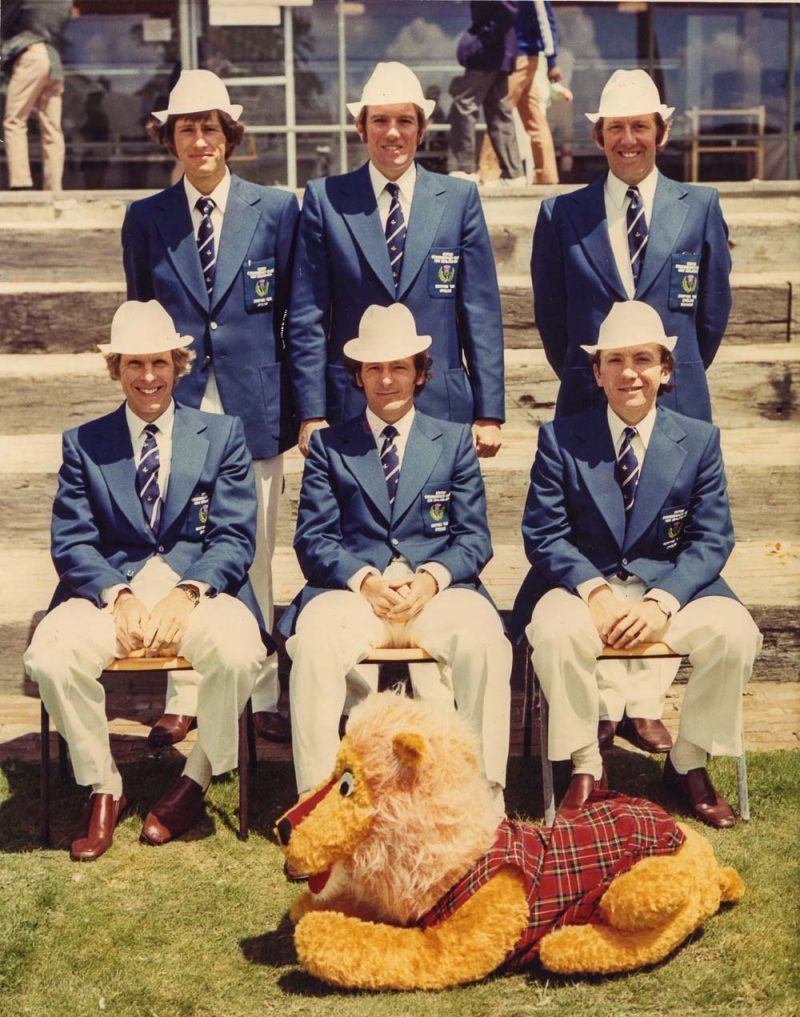
You rode The Games as well as managing, didn’t you?
“Yes, I rode in 1962, I was 13th, Wes Mason of England won it – but it wasn’t like the Games are now, the field was so small and once the break was away that was it.
“I didn’t get a ride at the Games in ’66 but wasn’t too concerned as I had a good year with a lot of wins then I managed in ’70, ’74, ’78, ’82, ’86 – where Eddie Alexander won bronze in the sprint – and in 1990.”
And you managed GB teams?
“Probably my best memory of my GB trips is managing the team in the 1980 GP Felix Melchior in Luxembourg which Joe Waugh won overall and Jeff Williams was king of the mountains in.
“And we enjoyed success in the Sealink International.
“I had my teaching career so I had to fit race trips in around my career; I only did the big races.
“I did the Peace race twice, Tour of Slovakia and Tour of Bohemia, those East European riders were hard as nails.
“You could tell who the best riders were just by looking at their bikes, the best guys had shiny, new Colnagos whilst the not so good would be on the old, chipped cast-offs.
“These races were all selection events for the East Europeans who had to perform to remain on the national squad and continue to enjoy the benefits of their privileged position.
“It was a different world in the Iron Curtain countries with a civic reception every night.
“But because there wasn’t really any money available, riders had to look after their own bikes at night.”
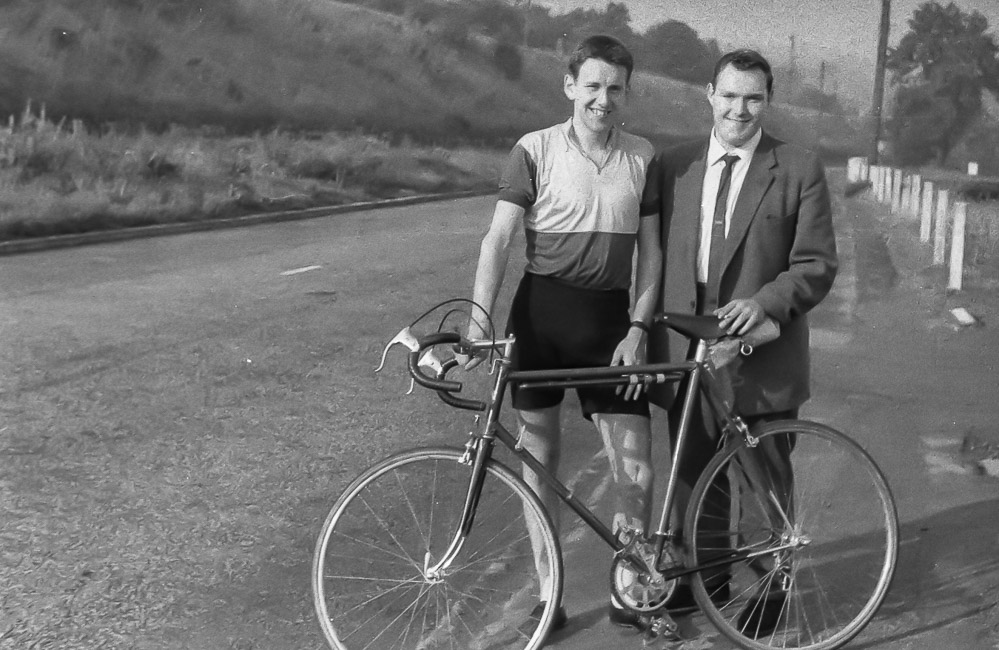
Who do you rate as the best riders you worked with?
“Robert Millar, of course, and Jamie McGahan was very talented – remember that he won the Ràs and the Scottish Health Race.
“From an earlier era, Jim Leitch, who was in the Stella, was very talented but became disillusioned with officialdom and was lost to the sport.
“One of the reasons I got into management was that I rode an event at Barrow and they decided to make an example so they disqualified the whole bunch for ‘crossing the white line.’
“I thought to myself; ‘I can do better than that!’
“And there was no money in the sport back then, Ken Laidlaw was another very talented rider but when he went to Canada and saw the kind of money he could make as a joiner – that was the end of his cycling career.
“I remember asking the SCU treasures for money to take a team to a race, he said there was none right then because of ‘the cash flow situation’ so I asked how it would be if I paid, then got the money back later in the year.
“He agreed to that – but that was how it was back then.
“The sport has changed so much, back in the 70’s the SCU had 700 members, now it runs to thousands.
“The Glasgow velodrome has been great, a point of focus for the sport, winter and summer.
“But the culture has changed, the days of ‘drum ups’ have long gone; us all coming home late smelling of camp fire … fun times – but gone now.
“Of course, cycling was a means of transport back then, now everyone has a car…”
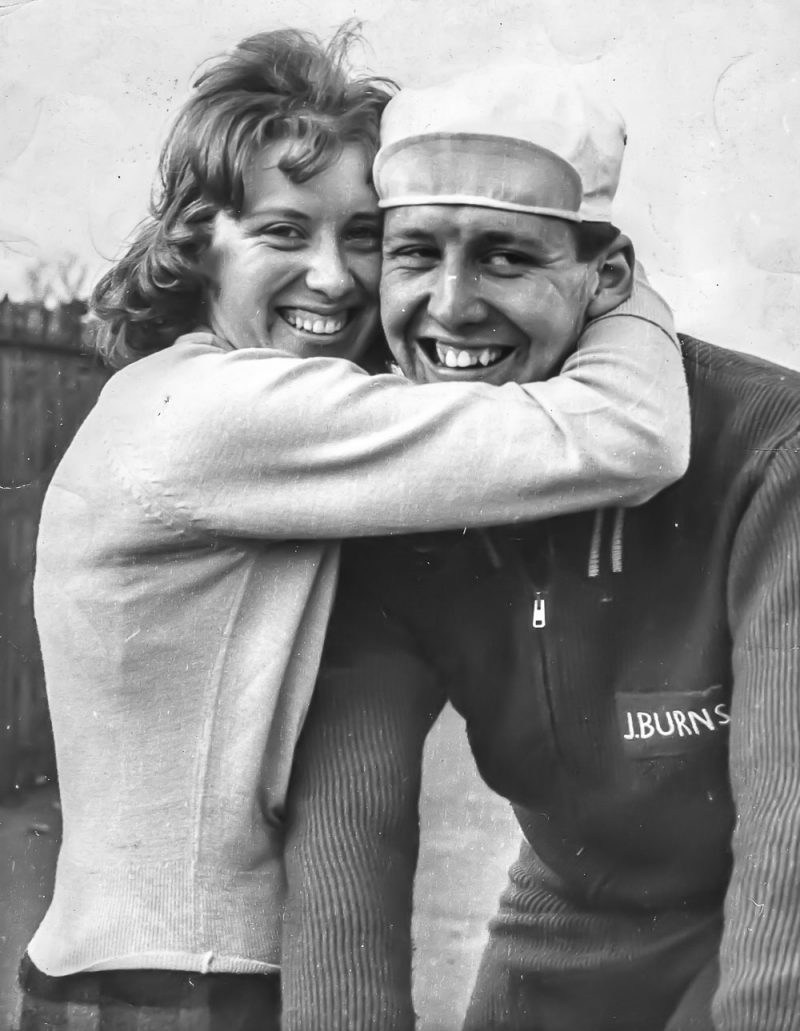
With thanks to Ian for his time, insights and wonderful pictures.



